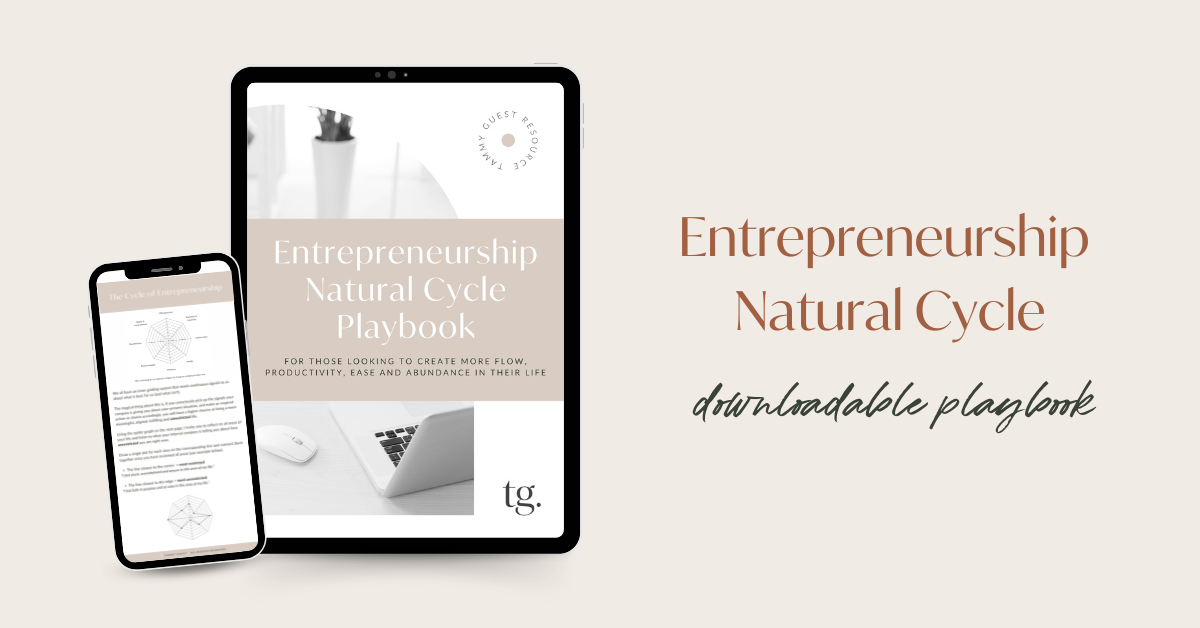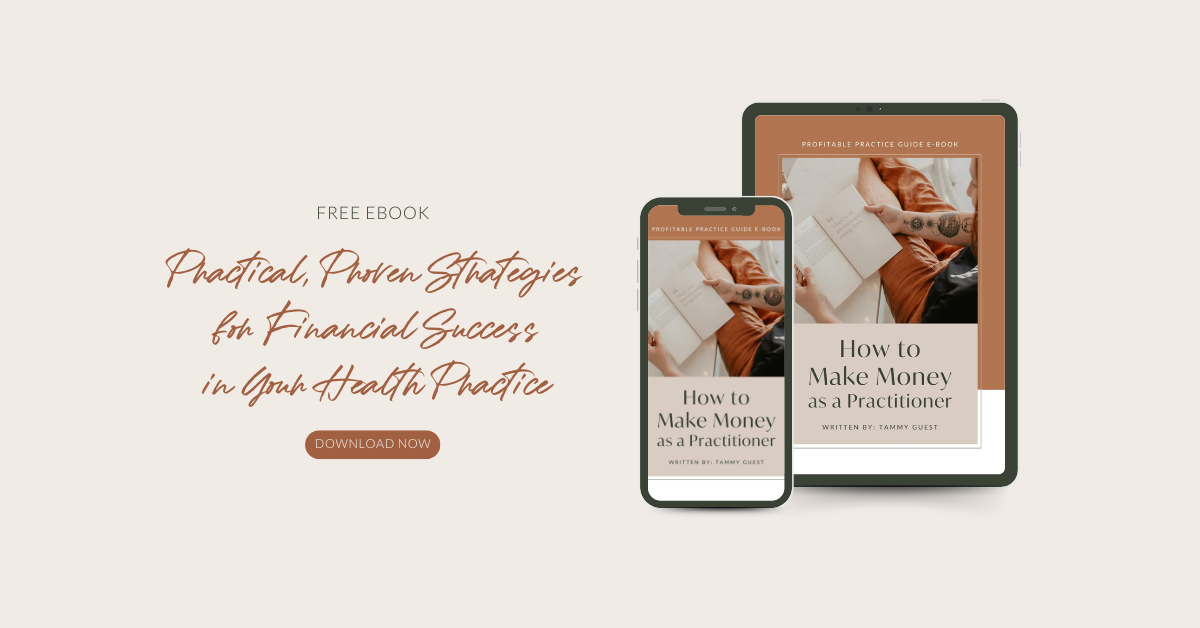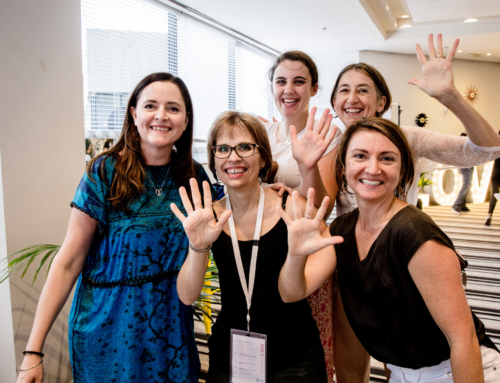In this episode, I spoke with Emily Banks all about actually taking the leap to start your business or passion project!
T: Hi everyone and welcome to another episode of the Natupreneur Movement and our limited series focusing on the Natupreneur Experience. Today, I am super keen and very excited to introduce Emily from Verve Natural Health and creator of Prac2Pro. She’s got amazing experience in providing incredible coverage for her personal naturopathic clients as well as her multi-modality clinic, and an amazing partnership that she has with the other staff members in her clinic. She also expanded to create a valuable tool to enable any practitioner with a website to allow their clients to track their health and well being. Hey, Em!
E: Hey, nice to talk to you.
T: You’ve got this amazing multi-modality clinic, Verve, it is beautiful. I love your back wall full of those yummy tiles. And you have an incredible dog that’s a therapy dog (she’s just gorgeous!). Plus, you’ve got this other part of your practice where you utilise this incredible tool for your own clients, and now you’ve made it available for so many others. But it hasn’t always been like that. You were just saying just before we got on that it’s actually been five years yesterday that you’ve been in practice. Was it super easy right from the beginning?
Starting the Business
E: Yes, totally! Everything just fell into my plan! I’m kidding, actually not at all. Yesterday was five years that I’ve been graduated, so it’s actually only four years in practice, now. I spent the first year in tech support, so absolutely not. It hasn’t been easy. It’s been super expensive. I think any journey of growth is pretty intense. So, yeah, my clinical practice started in other clinics. I’ve really only been running Verve as it is for two years now. And Prac2Pro for one.
T: Really? Wow! So, when you go from tech support where you just answer people’s questions, what made you go for the leap to actually go to clinical practice? Because we’re going to have a lot of practitioners listening who might be in either tech support sales or some other role who are considering taking the leap into practice.
E: Well, for myself, I, I always knew that I was set to be a clinical naturopath because when I was in college, my jam was being in clinic. I got the Clinical Excellence Award when I graduated, it was just second nature to me. So I always knew that’s where I wanted to end up. But as most people will know, there’s not really employment opportunities when it comes to being a clinical naturopath. So, I went for whatever job I could find that was related to naturopathy and that was in tech support.
Accept Opportunities
I got fed up, I suppose, mainly with the culture within the company that I was working for. And yeah, I just ended up biting the bullet because an opportunity came my way and I knew after trying to seek those opportunities for a year in a clinic that it wasn’t easy to come by. So I jumped at the opportunity that was offered to me to move towns and start practising at a multi-modality clinic as a contractor.
I was offered a lot of things that didn’t end up happening, as well. There were some grandiose promises made. And all of that was an integral part of my journey because obviously if I was just happy working in that clinic, I wouldn’t be who I am today, and I wouldn’t have done the stuff that I’ve done today. So if you’re curious about what it’s like to take the leap, it’s scary as shit! I essentially accepted the opportunity before I even spoke to my partner about moving.
But I think when the right thing comes your way that you know is going to expand you, you can feel it on so many levels. And if you don’t honour that, then you will stay exactly where you are. And eventually, you will become so unhappy that somebody will force you to make the change.
Answering the Call
T: I love that what you just said. There are lots of opportunities that come your way but when there’s one that really gets you – I call it “getting the jiggles.” You know, it really jiggles you on the inside because you’re bumping up against a comfort zone. And that whole entrepreneurial spirit where you leap and then build the aeroplane on the way down. So you leapt and you didn’t tell your partner along the way! You said you went into a multi-modality practice but now you are actually running Verve. So how did that come about? Was there another leap?
E: Oh, so many leaps. Yeah, I’ve just been leaping basically for like four years. So I worked in two multi-modality clinics. For me, a leap of confidence in myself was moving from one multi-modality clinic as a contractor where I had no financial commitments to working in a different multi-modality clinic where I had to pay a rental fee. That’s where I really had the opportunity to start to build my own brand and not just fall under the brand of another clinic.
So I had a website built and all that sort of stuff and I was just on the go all the time, so inspired.
T: It’s a really interesting point about that. It’s something I’ve spoken about over the years. It was one of my biggest growth phases to actually have to show up and pay money for stuff. It takes you from that first little inkling that you’re not running a hobby anymore when you’ve actually got to create the money. You’ve got to find a client to pay for your rent. Then, once you’ve got that flow of money comes in, money goes out, you start to go, ‘Oh, I could actually pay money for a website.’ So I think that’s a really good, good point that you made there.
Invest In Yourself
E: Yeah, it’s the first investment that you make in yourself as a clinician and as a business operator, and you start taking on financial commitments. Also because I was paying certain fees, I was much more involved in the processes occurring because I was paying rent. I had certain expectations of what I would receive as part of that brand.
That’s actually what pushed me out of that clinic and pushed me to start my own business where I was operating everything. Because I realised that I could do it the way that I wanted and the way that I needed it to be done, if I was doing it on my own. That was one of the biggest leaps.
I remember investigating how I could work on my own. I was living in a shared house with an acupuncturist that I had worked with at the first multi-modality clinic. She had a home clinic so it kind of worked out a little bit divinely. She said, ‘ Just start operating from the space that’s already set up here.’ And I just paid a small amount of rent for each person that I was seeing.
Then, I started looking into how I could get an F Pos terminal. I was working part-time at the time to pay for everything. I wasn’t depending 100% on my business to bring me the funds I needed to live because that would have been way too stressful. So looking at the high cash rental fee of $25 a month, and having a plan of how I would have that $25 a month. It wasn’t like, ‘Oh, yeah, that’s not a problem.’ I was concerned about the rental fee!
T: I remember having a very similar moment myself. It’s incredible to look back, though. And it’s only a few short years. I think that’s the thing that a lot of people get discouraged by is, it’s really tough when you’re trying to find the next dollar or the next $5, let alone hundreds of dollars for some things. But it can be shorter than people consider. Maybe it’s a five-year journey, maybe it’s a 10-year journey. But it’s actually only been two years for you, right?
The Whole Journey Counts
E: In the capacity that I’m operating now. Yes. But, really, the whole four years counts, because all of that journey was essential in where I am now. Having said that, the last two years feels like 10 years when you’re in it. You lose track of time.
But one of the most important things that I have learned that really allowed me to give myself some self-compassion and actually step back and choose to actively enjoy the journey, rather than view it as just this struggle, and eventually when I reached a certain point, I’d be happy. I learned some information that businesses have a life cycle just like human beings. And the child phase of a business where it’s dependent on you just like a baby is two to five years.
To keep from being disheartened, you need to:
- have the reality check of, ‘Hey, you are probably not going to be a millionaire in a year’
- not have a short expectation of what it takes to build something that’s actually going to start giving back to you and be interdependent and not rely on every single piece of you to be able to make it function
- be realistic about how long it takes to achieve that
Plan Ahead
Having a 10-year plan is important, as opposed to having a one year plan and expecting everything to fall into place and to be drawing profit in a year (or two or three). That’s super important because so many business owners only talk about the money side of things, the turnover, as a metric of their success.
But when we’re really looking at the time that it takes to achieve these things, it’s massive. I don’t think it’s spoken about enough to give people a realistic expectation of what it takes.
T: Yeah, totally. 100%. Just like there’s not enough parents out there speaking about the reality of what being a parent looks like. It’s exactly the same thing for business.
E: Yeah, exactly. It’s like expecting your baby to run within a year of being born.
Innovation
T: Beautiful. So you’ve got Verve, and that’s extraordinary. But there was another leap because there’s this incredible tool that you were using and now you’ve created it and made it available for so many other practitioners to use. Can you tell us a little bit more about the state of Prac2Pro?
E: Absolutely. When I was first starting on my own, I realised that I needed a tool to be able to track all aspects of my clients’ health. I found that I was spending so much of the consult focused on their concerns that I wasn’t covering basic information about systems. Things like, ‘do you move for longer than an hour a day?’ things like that.
So I created a quiz that allowed me to cover all aspects of their health in a generalised sort of fashion so that I could then put all that information into a graph and show them exactly where their health is at, how things are interrelated, what we were going to work on. And then show them obviously, as time progresses, how things were changing in that graph.
This was about three years ago to help me in practice. I was a relatively new graduate. So I was finding it quite overwhelming to be able to cover everything in one visit. And I have used it in my clinic ever since. It’s an invaluable tool for us. We use it with every single client.
When I was in Bali with you, a bunch of people started asking me about it. And I was explaining it in regards to marketing and how you could use this tool to be able to show leads exactly where they need to focus on with their health. And most importantly, to show people that health is complex and it’s never just one thing. This graph does that so well. I get a lot of leads on my website with this and a lot of people convert into clients without me even contacting them. It’s pretty awesome.
So I developed the graph and the quiz into software after being asked so frequently about how people could have access to it. I also wanted it to be available on my website as an opt-in tool. So I had it developed into software and I launched Prac2Pro in a record time of six weeks in December of 2017.
That was that leap in itself because it was an investment into something that I didn’t know where it was going. But I call Prac2Pro my love child. It’s something that just has progressed and developed so divinely. It’s almost like it’s going into being an adult much more quickly than my first child (Verve). I guess the second child is a bit easier.
Start Your Business or Passion Project
T: The really cool thing about this is for any other practitioners out there with a little sideline thing that’s going on in their mind. They might be fearful about paying it attention. Or they might be fearful about taking time away from their clinical practice to expand on that project that actually has their heart. Their passion project. What kind of tips would you give them?
E: Follow it It’s important, I think, to have some amount of fear involved in anything. Because if you’re not fearful, you’re not stretching your comfort zone at all. You got to have that moment of, ‘Oh, my God! Should I do this? ‘If you don’t have that, then are you really growing?
If you’ve created something that is needed and you are talking about it because it’s helping you in clinic – you know, that’s how I started talking about Prac2Pro. I was just sharing information about what was working in my clinic and what I was finding helpful. Then people just asked me about it. If you have interest, you have desire, you have something that’s innovative.
You have a limited amount of time, I believe, to actually create something out of that. If you have a passion or a side business, I’d recommend reading a little bit of the book called Big Magic. It talks about ideas being in an entity of their own and when they come to you, you have a certain amount of time where that idea inspires you. If you don’t act on your inspiration, then I do truly believe it just fades away from you and goes to someone else.
Connection, Collaboration, Innovation
T: I agree. And that takes us beautifully into our final question around the themes of the conference being Connection, Collaboration, and Innovation. Your innovative experience with this project is really similar to the Simple Clinic innovation that was really helping in Marianne’s practice. There are a whole bunch of other people who are using these innovative side projects that then become some of the most profoundly useful things for our profession. There are so many things sitting on so many practitioners computers that would be so valuable to so many people if they actually got them out there.
One of the things that I really admire about the way that you do things is not only your clinical capacity and but also your entrepreneurial spirit to see things innovatively. How have connection, collaboration, and innovation shaped your business?
E: Well, innovation has created a whole new business for me. It’s taking me on a journey that I wouldn’t have ever foreseen. So I really surrendered to that process of innovation and it’s something that keeps expanding. Prac2Pro is just getting started. There’s more innovation to come within Prac2Pro. Which is awesome because it is the process of surrendering that allows it to come to life. Otherwise, you just get wrapped up in the fear of putting in energy and all that sort of stuff.
As far as connection goes – I think connection has been the most important and essential part of me not giving up. Business can be really effing hard. And anyone that is telling you that it’s super easy and you’re going to be a success in a year – take it with a grain of salt. Because it is hard. It is more than just building a business. It’s about becoming a new person, basically. You’re adopting new beliefs, new skills, new habits. It’s really intense and the connection side of things which started with you creating the Hub and the club that I was in, which oh my god, just propelled me to the next level.
Connection is Key
Connection keeps me going because my biggest battle sometimes is having belief in myself. So I surround myself with people who believe in me because it pushes me to be the person that they know I can be. Connection is completely vital. If I were doing this alone I’d still be in a bloody seven-metre office just slugging my guts away. I am super fortunate, as well, because I have an amazing sidekick, Wendy, in my clinic and we really, really help each other.
So connection, in that way, is so so essential. There will be times where you doubt yourself and you need to have other people to pull you out of that space. Connection to myself has also been just totally next level. It’s only been since I’ve been going inwards and doing all the inner work on releasing belief systems and replacing them with new ones that actually serve me. Doing the inner work on becoming the identity of the person that has all this stuff that I want.
It’s all that inner work that has also pushed me to keep going. When I’m triggered because of the inner work I’m doing, the people around me help to pull me out of that and see the illusion of what’s going on. But going inwards is just as important as finding the people externally who can assist you. If you don’t change who you are to evolve, and adapt, and become the identity of a successful business owner and a leader, then it’s very, very difficult.
It’s like being given a ship and not learning how to sail it. Connection in that way internally and externally is, I think, debatably the most important part of all of it. I would have given up a long time ago if other people weren’t there to tell me not to. It’s easy to give up on yourself. But when you surround yourself with people who can see all the qualities in you that you need to be reminded of, it’s much more difficult to give up because you’ll not only be disappointing yourself, you’ll be disappointing them.
T: Beautiful. I love that. That distinction with the inner connection and the external connection. Both are so important in life. I am definitely of the notion that entrepreneurship and owning a business is the biggest personal development journey that you can have.
E: 100% and I think that that is something that is not really understood until you are on the journey. You feel so lost if you don’t have examples in front of you that it is really just an exploration of yourself. Entrepreneurship and being a business owner is about uncovering all of these aspects of yourself that are just waiting to be pulled out. If you don’t do the inner work, shit will fall apart.
T: Yeah. That’s why I’m so excited about having an even deeper exploration in your workshop at NatEx. Because it is about both the business aspect as well as the internal work. And I think it’s such a profound thing that we don’t have enough conversations about. I’m super, super excited that you’re going to be presenting on these types of conversations. We are actually having two whole days on these types of conversations because they really, truly need to be had. So I’m honoured that you are coming. Thank you so much for our conversation today!
Join Us at NatEx
Thanks for listening! If you got something out of this, consider attending this year’s Natupreneur Experience, where we will be having lots more conversations like this one. Not to mention, the amazing workshops and presenters who will be there to expand your understanding of how you can run your business, achieve the success you are craving, and connect with other praccies who will support and inspire you.
Get all the details and get your ticket now at TammyGuest.com/natupreneur-experience
Free Resources
If you’re thinking outside the box and considering taking your business online, make sure you have all the essentials you need to successfully transition to online consults and a virtual practice covered with my How To Pivot Online Checklist.
Click here to download it now.










Leave A Comment